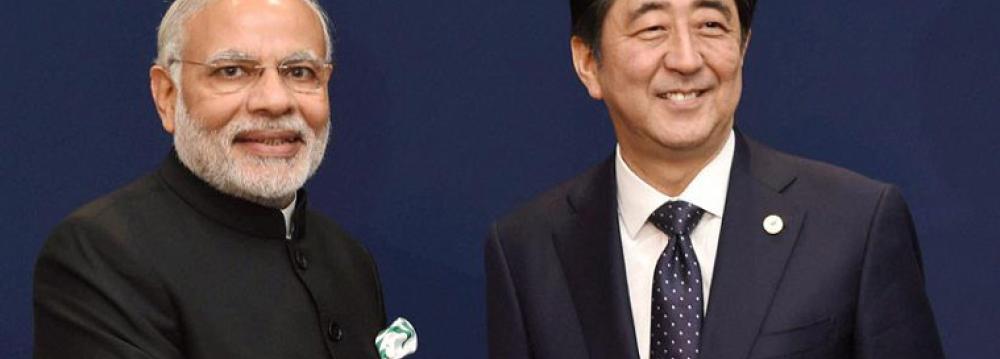Japan has signed a controversial deal to sell civil nuclear power equipment and technology to India, despite resistance from campaigners, as the two countries seek to boost business and security ties.
The pact, signed on Friday in Tokyo by Japanese Prime Minister Shinzo Abe and his Indian counterpart Narendra Modi, marked the first time Japan agreed to such a deal with a country that is not a member of the nuclear Non-Proliferation Treaty, Al Jazeera reported.
The treaty bans nations other than the five permanent members of the UN Security Council from developing and possessing nuclear weapons.
Critics in Japan, the victim of US atomic bombings in the final days of World War II, have previously raised concerns about a risk of the country’s technology being diverted to India’s nuclear weapons program.
Yet, the deal is limited to peaceful commercial use, and Tokyo can terminate it if India conducts a nuclear test.
The pact allows India to reprocess fuel and enrich uranium, though highly enriched uranium that can be used to make nuclear weapons is not permitted without written agreement by Japan.
Abe and Modi insisted the agreement will contribute to the peaceful use of clean energy.
“This agreement sets a legal framework to assure that India acts responsibly for the peaceful uses of nuclear energy,” Abe said, adding that it gets India to effectively participate in the non-proliferation treaty framework.
“It is also in line with Japan’s position to promote non-proliferation to create a world without nuclear weapons.”
Abe’s pro-business government seeks to export nuclear power plants to counter shrinking sales at home since the 2011 Fukushima nuclear disaster, and has discussed similar deals with Vietnam and Turkey.
Modi praised the signing as “a historic step in our engagement to build a clean energy partnership” that will help India to “combat the challenge of climate change”.


